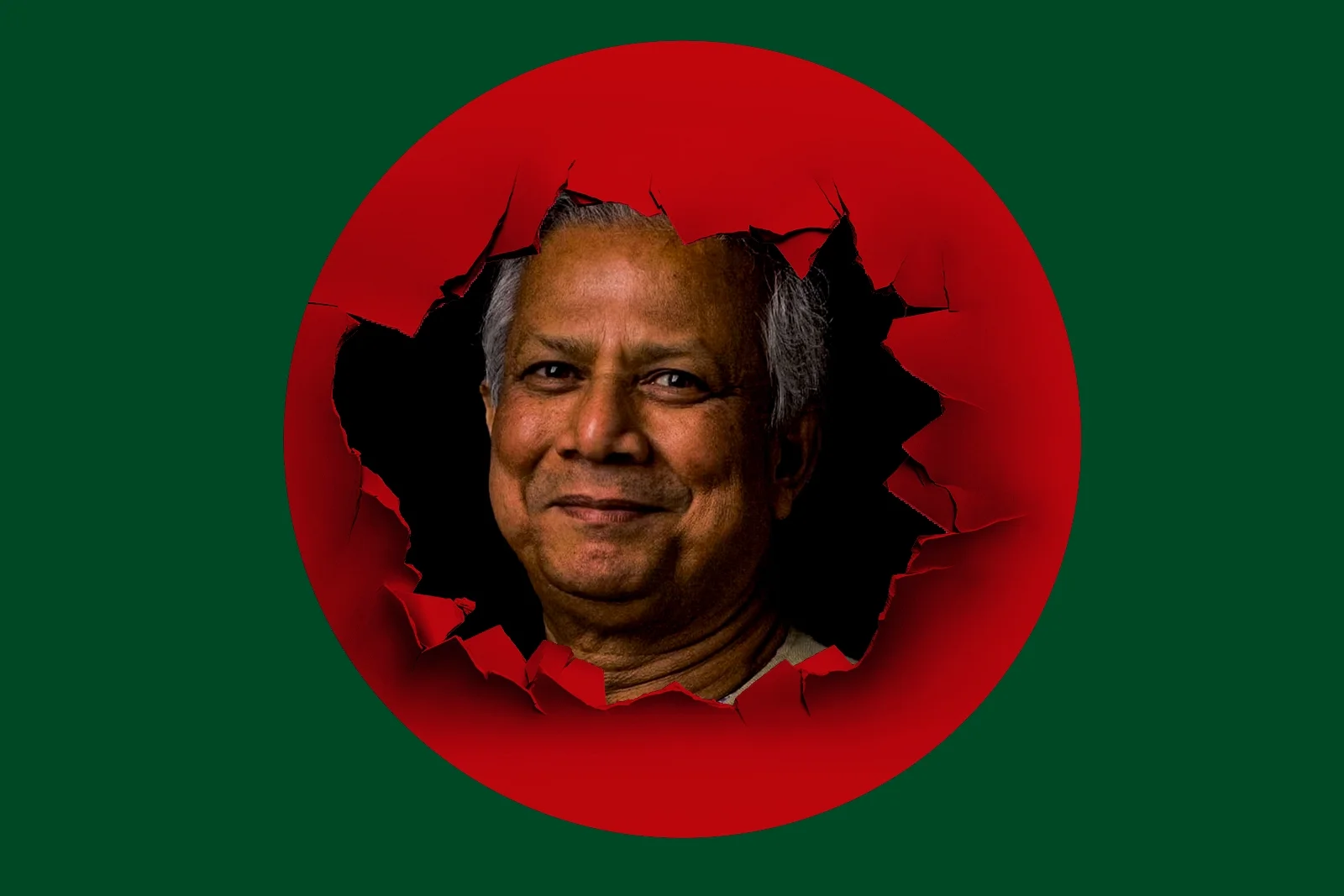
Promises Broken: How the Monsoon Revolution Lost Its Way
Sheikh Hasina’s August 5th flight from Bangladesh, spurred by weeks of student-led protests, had seemed to mark the dawn of a new era. Citizens envisioned a future defined by justice and democracy, free from the heavy-handed rule of the Awami League. Yet, in the five months since Hasina sought refuge in India, the interim government has fallen far short of these aspirations. Instead, it has escalated repression, targeting anyone with even the faintest connection to the previous government.
Under Nobel Laureate Muhammad Yunus, the interim government initially promised a transitional period marked by democratic reform and reconciliation. However, that vision has quickly dimmed. In a televised address on Sunday, Yunus announced that elections remain at least a year away, dashing public hopes for a swift democratic resolution. The so-called Monsoon Revolution, built on demands for fairness and an end to retributive governance, now appears mired in the very cycle of retribution it sought to dismantle. From former MPs to journalists and students, the government has targeted individuals linked to the Awami League, sowing fear and disillusionment.
The seeds of this retributive justice were sown in the chaos of August’s protests. Amid the unrest, over 20 Awami League members and their families were brutally killed, including five teenagers who perished in an arson attack on their home. These acts of mob violence remain unresolved, as accountability has taken a backseat to political vengeance. While arrests have been made, the crackdown has almost exclusively targeted Awami League members. Within days of Hasina’s departure, hundreds of lawsuits were filed against party affiliates. Viral images of the elderly and ailing former Water Resources Minister Ramesh Chandra Sen, bound and arrested by the army, epitomize the interim government’s approach.
This wave of arrests has not spared private citizens. Vigilantes, emboldened by army backing, have taken justice into their own hands. One stark example occurred at a university, where students detained a former MP during an event and summoned the military to arrest him. Despite his detention, details of his charges remain undisclosed, an alarming trend mirrored across the country. Week after week, the interim government announces new arrests, often based on vague accusations or unsubstantial evidence. Targets range from celebrities to former officials, with allegations as varied as derogatory remarks about BNP leaders and attempted murder. Yet, specifics remain frustratingly scarce.
The interim government’s focus has also turned to the private sector. It has accused 10 prominent companies of exacerbating Bangladesh’s financial woes by allegedly benefiting under Hasina’s regime. Bank accounts have been frozen, and high-profile accusations have been leveled, though tangible evidence remains scant. One affected firm has escalated the issue to the World Bank’s International Centre for Settlement of Investment Disputes in Washington. These unsubstantiated claims have also extended beyond Bangladesh’s borders. In a controversial move, the government recently accused UK MP Tulip Siddiq of embezzlement, an allegation rooted in the word of a political adversary of Sheikh Hasina.
The government’s pursuit of political opponents reached a new intensity in October. Bangladesh’s International Crimes Tribunal issued arrest warrants for 50 senior Awami League figures, including Hasina herself. Human Rights Watch expressed concerns about the tribunal’s impartiality, the lack of protections for victims and witnesses, and the government’s heavy-handed tactics. The NGO joined others, such as Amnesty International, in condemning the government’s threats to ban political parties, a measure they argue undermines democratic principles.
Meanwhile, the interim government has shown little interest in addressing more pressing security threats. Of the thousands who escaped Kashimpur Prison during August’s unrest, 70 fugitives remain at large, many armed and convicted of heinous crimes. Instead of pursuing these individuals, the government has implemented heightened security measures amid rumors of staged clashes aimed at eliminating Awami League detainees. The lack of focus on genuine threats reflects a government more concerned with political retribution than national stability.
Tensions with neighboring India have also escalated, driven in part by the growing internal strife between Bangladesh’s religious communities. Violent clashes during protests have become routine, with students and members of the Bangladesh Nationalist Party (BNP) and Jamaat-e-Islami frequently targeting Awami League supporters. The interim government’s decision to outlaw the Awami League’s student wing under anti-terror laws has only intensified the conflict, forcing many students into hiding. Arrests of students during exams and reports of on-campus beatings have further stoked fears. A senior Dhaka police officer, speaking anonymously, admitted that many arrests are based on vague suspicions tied to July’s protests, particularly against members of the Chhatra League.
Journalists have also borne the brunt of the interim government’s authoritarian approach. Groups like the National Union of Journalists and Reporters Without Borders have condemned the government’s treatment of the press. Mahfuz Anam, a leading Bangladeshi journalist, has drawn parallels between Yunus’s government and Hasina’s, noting both regimes’ use of legal measures to silence critics, political opponents, and independent media voices. Instead of fostering hope for democratic reform, the interim government has perpetuated a legacy of repression.
Bangladesh now stands at a critical juncture. What began as a hopeful call for justice and reform has devolved into a grim tableau of political vengeance and authoritarian tactics. If Yunus and his government fail to address these issues, the promise of the Monsoon Revolution may never come to fruition, leaving the nation further divided and its democratic aspirations tragically unfulfilled.
